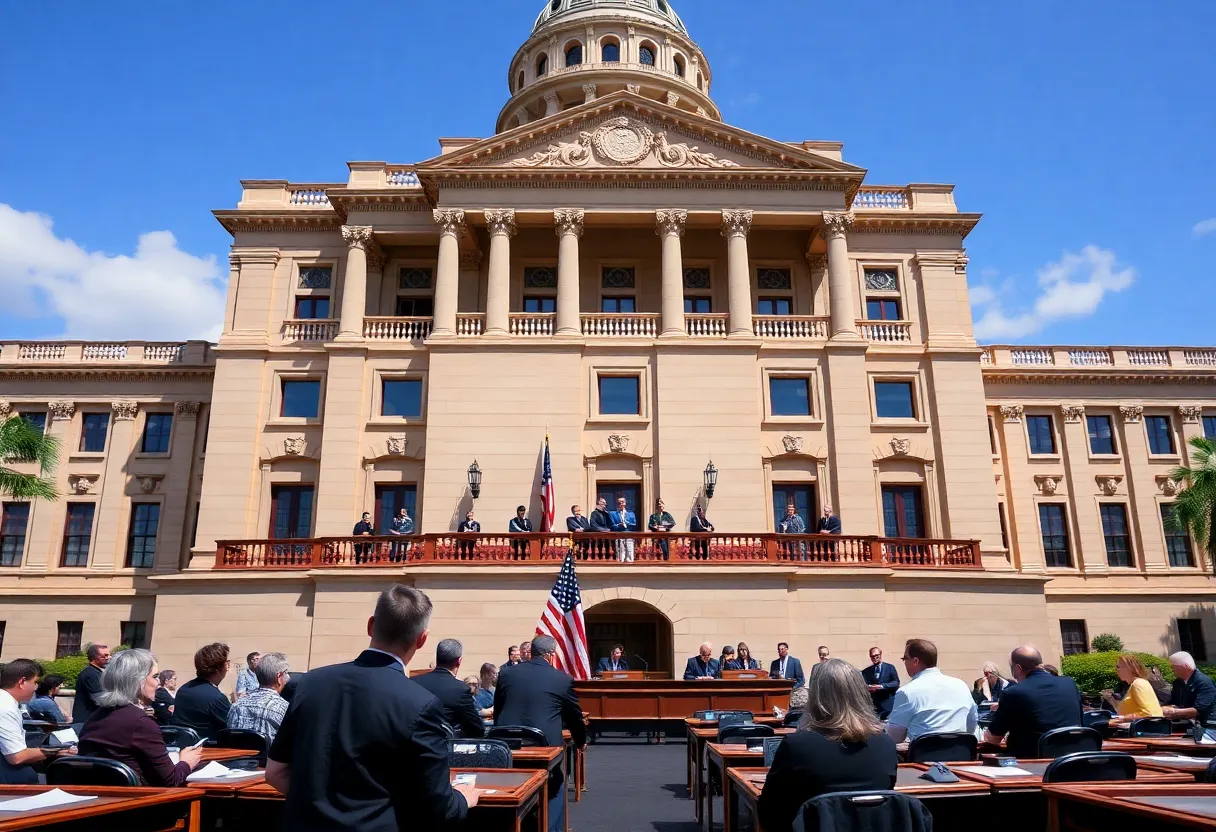

Florida Lawmakers in Session
Want to target the right audience? Sponsor our site and choose your specific industry to connect with a relevant audience.
Prominent brand mentions across targeted, industry-focused articles
High-visibility placements that speak directly to an engaged local audience
Guaranteed coverage that maximizes exposure and reinforces your brand presence
Interested in seeing what sponsored content looks like on our platform?
May’s Roofing & Contracting
Forwal Construction
NSC Clips
Real Internet Sales
Suited
Florida4Golf
Click the button below to sponsor our articles:
Sponsor Our ArticlesFlorida’s GOP-led Legislature has passed a $115.1 billion budget along with a $1.3 billion tax cut package aimed at providing relief to businesses. Key measures include eliminating the sales tax on commercial leases and permanent year-round exemptions for essential items. Despite bipartisan support, some lawmakers have raised concerns about the impact on average residents and local government revenues. The budget reflects a $3.5 billion decrease from last year, while educational funding and state employee salaries will also see increases.
Florida lawmakers have approved a significant fiscal plan aimed at providing relief for businesses amidst changing economic conditions. The GOP-led Legislature has finalized a $115.1 billion budget for the upcoming fiscal year, along with a $1.3 billion tax cut package, intending to ease the financial burden on businesses in the state.
The final votes on the budget took place just before midnight on June 24, 2025, extending the legislative session past its scheduled end date. The budget for 2025-26 reflects a decrease of $3.5 billion compared to the previous year’s budget, falling half a billion short of Governor Ron DeSantis’ initial proposal.
The Senate unanimously supported the budget, while dissent came from two Democratic representatives in the House. Key components of the approved tax cut package include a permanent elimination of the sales tax on commercial leases, which is expected to result in a $904.8 million reduction in state revenue. Other measures included in the tax package comprise exemptions from taxes on aviation fuel and a 2% reduction in taxes levied on cardrooms.
Additionally, the tax cut package introduces permanent year-round sales tax exemptions for essential items such as back-to-school supplies, hurricane preparedness tools, and state park admissions. Notably, despite the optimistic tone surrounding the tax cuts, some lawmakers expressed concerns regarding the anticipated savings for average residents.
House Speaker Daniel Perez indicated that the elimination of the business rent tax is particularly beneficial for small businesses, aiming to directly assist local shop owners rather than larger corporations. The budget also allocates $1.5 billion to the Budget Stabilization Fund to prepare for potential adverse economic conditions in the coming years.
State employees will receive a 2% salary raise, with each worker guaranteed a minimum increase of $1,000. Educational funding is set to increase by $945 million, primarily funded through local property taxes. Additionally, lawmakers have committed to exploring property tax reform in future sessions and have planned a study to assess the implications of such reforms.
The tax package faced opposition from seven House Democrats and two Senate Democrats. Critics argue that the measures predominantly favor businesses at the expense of individuals. Senate Democratic Leader Lori Berman highlighted that the financial benefits chiefly accrue to businesses rather than the average citizen.
State Representative Dean Black defends the tax bill as a worthwhile compromise, expressing a commitment to pursuing further tax reforms in subsequent sessions. Among the specific legislation provisions is a back-to-school sales tax holiday scheduled for one month in August, anticipated to save families around $168 million.
Other products receiving permanent sales tax exemptions include life jackets, bicycle helmets, sunscreen, and fire extinguishers, aiming to alleviate financial strains on households while promoting safety and preparedness.
Local governments, however, have voiced apprehensions regarding the impact of these tax cuts on their revenue streams required for delivering essential services. Lawmakers face ongoing challenges in balancing tax relief with maintaining vital services for their constituents.
News Summary The 2025 ACC Kickoff in Charlotte brought together representatives from 17 universities, showcasing…
News Summary The Atlantic Coast Conference (ACC) made significant strides during its annual Kickoff event,…
News Summary Florida State University has appointed Ryan Murphy as the new men's distance coach…
News Summary Florida State University is facing a federal complaint challenging its scholarship programs for…
News Summary The 11th U.S. Circuit Court of Appeals has upheld the Leon County school…
News Summary The Florida Department of Education is implementing new regulations on allergy management and…